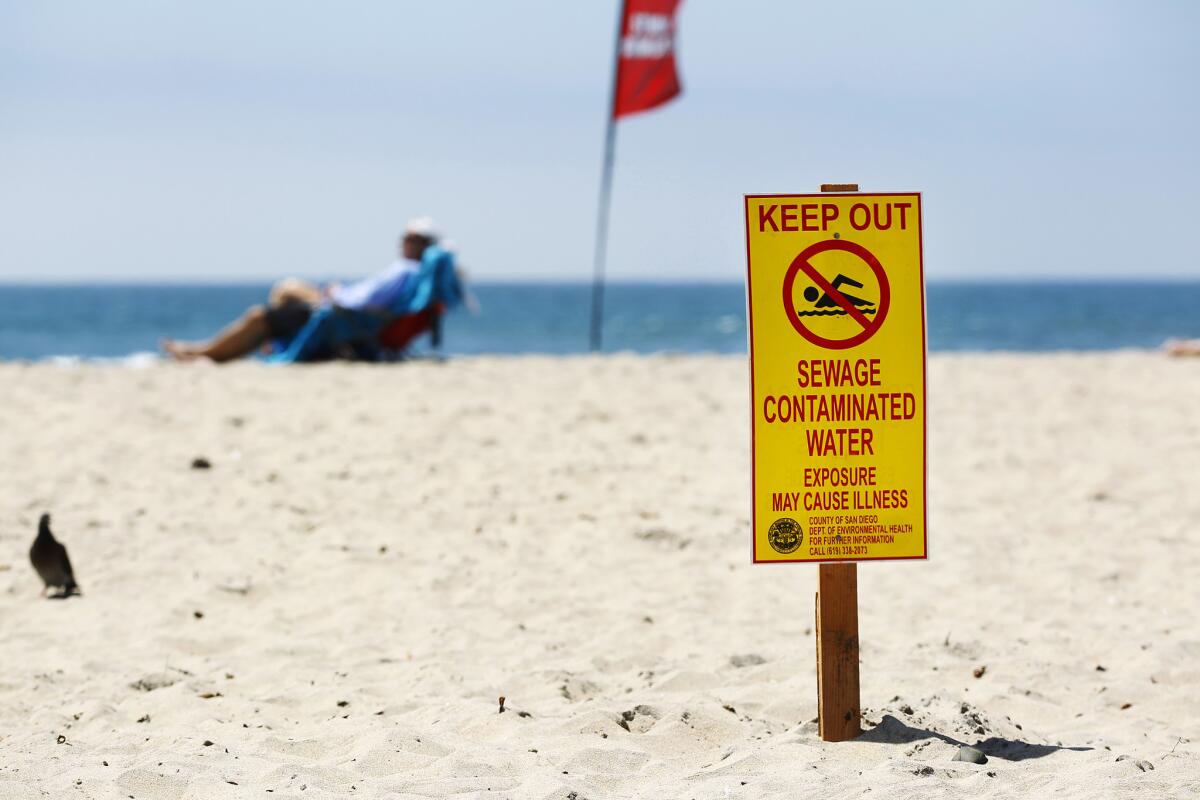Sen. Feinstein secures nearly $20 million to help stop Tijuana sewage from flowing into the U.S.

- Share via
The Senate approved almost $20 million in funding to address sewage flows along the border.
Sen. Dianne Feinstein, who secured language in three different appropriations bills for the 2020 fiscal year, called the spills that send millions of gallons of raw sewage from Tijuana to San Diego “unacceptable.”
The sewage flows have routinely closed San Diego County beaches for decades. Last year, Imperial Beach sued the federal government for failing to stop the flows, arguing the government is violating the Clean Water Act.
Several other public entities, including the city of San Diego and the state of California filed similar lawsuits.
“More concrete action must be taken to stop this decades-long problem,” Feinstein said in a statement. “Raw sewage overflows and other pollution from Mexico along the Tijuana River that jeopardize human health are unacceptable.”
The senator also encouraged partnering with Mexico to dedicate more funding and work with officials south of the border to improve wastewater infrastructure there.
Specifically, the Senate funding bills would do three things: appropriate $19.5 million for the EPA to increase its efforts to address cross-border sewage flows, direct the secretary of state to create an interagency plan to address the impacts of flows in U.S. communities that specifically outlines which agency is responsible for which step of the solution, and direct U.S. Customs and Border Protection to submit a report on the efforts to protect agents from the toxic flows.
Solis writes for the San Diego Union-Tribune.
More to Read
Sign up for Essential California
The most important California stories and recommendations in your inbox every morning.
You may occasionally receive promotional content from the Los Angeles Times.














